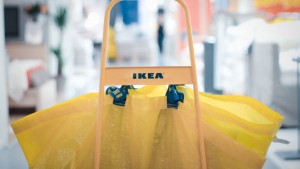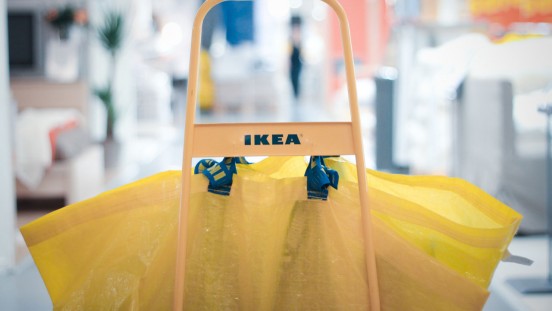
“Ikea Wants You To Stop Throwing Away Your Ikea Furniture”
Ikea’s trendy and cheap product offering comes with a cost – the perception of the furniture being “disposable”. Steve Howard, Chief Sustainability Officer of Ikea, is aiming to change the perception of affordable goods are also disposable goods by breaking the closed-loop economy through the implementation of circular store. Here are some of the programs they are testing:
Second Life for Furniture
Customers will be able to bring their old furniture in exchange for a store voucher. The customers can use the store voucher for a new Ikea product while their old Ikea product will be resold as-is or be recycled.
Reverse Vending Machine
If you insert a compact fluorescent light bulb, you get a voucher for coffee. Incentivising people is not the main purpose for this program; many of the consumers just did not have the access to throw out their garbage. Other items include batteries and mattresses.
3-D Printed Parts
To tackle the problem of disposing their products due to a minor problem, Ikea is encouraging their customers by taking good care of the original products and making it easier to repair the products when it breaks. In the future, Ikea hopes to use 3-D printing technology for making these extra parts more accessible.
I was very surprised to see that Ikea has a dedicated department for sustainability and that the team is passionate to solve the social issue very actively. However, I could not ignore my skepticism about their root cause of taking this action and also about the kind of ties this department has with the financial performance. In addition, I wondered whether or not Ikea has looked at the root cause of the problem. Have they thought about how to make a more durable product while maintaining their low costs with the new technologies? If they invest more into the architecture design to make it last longer, will these programs be necessary?
Putting all suspicions aside, in terms of the society being sustainably responsible, the strong performance of these pilot programs led me to think about the action “responsibility”. Being responsible doesn’t really provide direct benefits to the individual – one offers his/her seat to the elder on the bus because one is being a responsible citizen. If sustainability can be seen as a norm for being a responsible citizen rather than a contribution or an effort for a cause, whether that be for the society or for the environment, it would be much easier to integrate in our daily lives. The first step to creating this norm is heavily dependent on the customer convenience in terms of system and information transparency.
Article: http://www.fastcompany.com/3055971/most-creative-people/ikea-wants-you-to-stop-throwing-away-your-ikea-furniture



jaschen
March 28, 2016 — 3:19 pm
This is a very interesting comment. For me I see IKEA the same as most fast fashion company such as Zara, forever 21 or H&M. The products they offering are relatively cheaper but with no discount on fashion side. IKEA is doing the same strategy, they provide customers with trendy furniture but in reasonable price. Therefore, I think this is the answer for why they don’t invest in improve product quality. The fast fashion strategy kinda force company to keep up the pace with new product design. In other word, if they invest in quality improvement, since the product will be outdated in couple week, it will become sunk cost. As result, I think the recycle program is more a right strategy for them to do, but still, it is hard to know what is their true purpose is.
P Berg
October 14, 2021 — 2:26 pm
Go to the junkyard, the woods container, ikea is omnipresent. Pruducts have extreme short lifecycle, far from circular